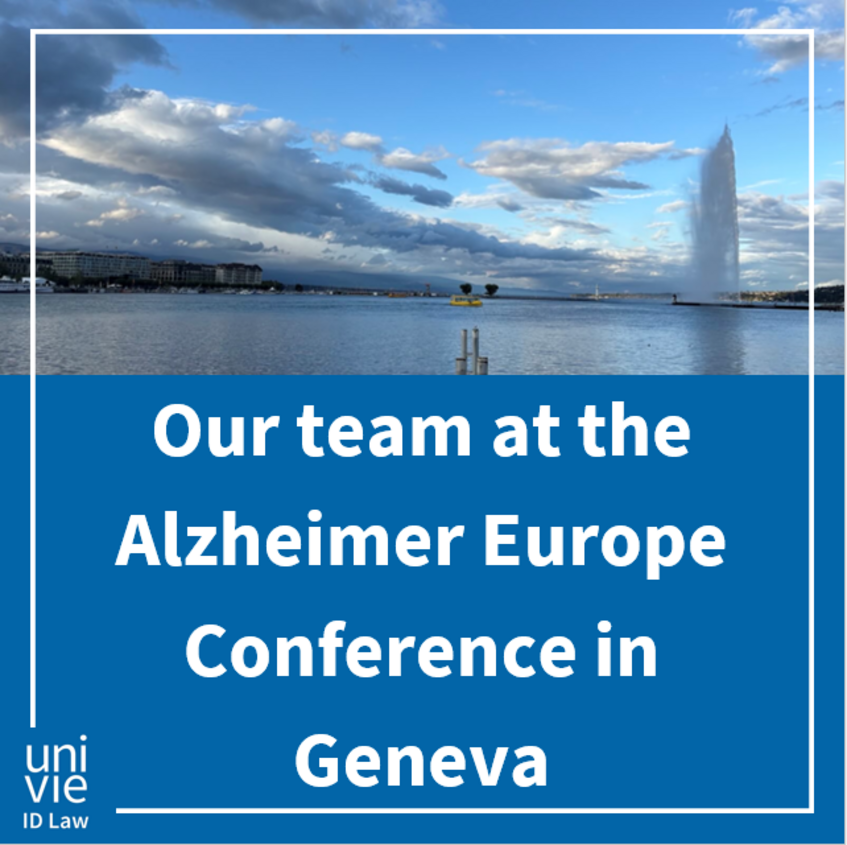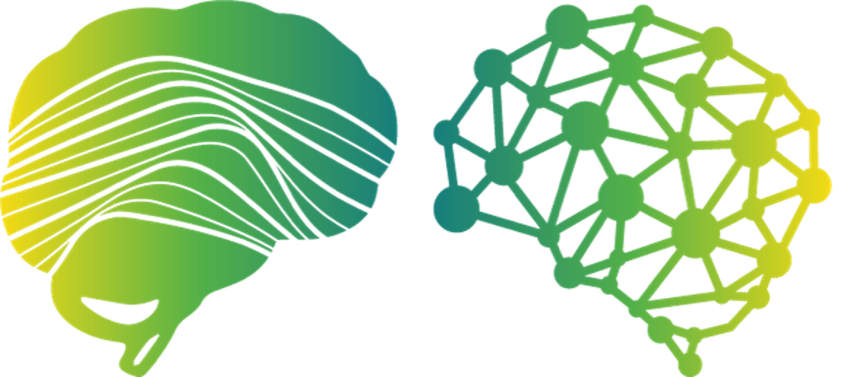Our team at the Alzheimer Europe Conference in Geneva

Our team at the Alzheimer Europe Conference in Geneva
by Klaudia Kwiatkowska, Alexandra Marginean and Marie-Catherine Wagner
Disclaimer
The authors are (partly) funded by the eBRAIN-Health Project. This project has received funding from the European Union (EU) under Grant Agreement No 101058516.
Funded by the European Union. Views and opinions expressed are however those of the author(s) only and do not necessarily reflect those of the European Union. Neither the European Union nor the granting authority can be held responsible for them.
On 10th October 2024, the University of Vienna team presented at the eBRAIN-Health symposium during the Alzheimer Europe conference in Geneva, Switzerland.
The Department of Innovation and Digitalisation in Law represents the University of Vienna in the eBRAIN-Health project where the Department leads the work package on legal and ethics issues. eBRAIN Health ‘Actionable Multilevel Health Data’ is a Horizon Europe project which aims to provide a data-protection compliant research platform for simulating and modeling complex neurobiological phenomena of the human function and dysfunction. Additionally, the project works on providing interdisciplinary digital brain twins to advance research into neurocognitive conditions, such as dementia.
The Alzheimer Europe conference and the eBRAIN-Health symposium
The Alzheimer Europe conference takes place every year and brings together experts from research, policy and academia as well as persons affected by dementia. The conference’s aim is to give speakers and delegates the opportunity to exchange knowledge and experiences. In 2024 the conference took place in Geneva between 8th and 10th October under the topic "New horizons - Innovating for dementia". During the conference, a dedicated symposium on the eBRAIN-Health project took place where consortium partners presented their research and reported on progress.
Klaudia Kwiatkowska represented the Department in the symposium and gave a presentation tilted “How are my rights protected? Policy frameworks governing health data in the European Union (European Health Data Space)”. She talked about what the European Health Data Space (EHDS) regulation is about and how it will regulate the secondary use of health data in research with a focus on patient rights. Since the eBRAIN-Health project envisions a research platform where health data can be re-used for scientific research purposes, it is relevant to talk about the EHDS and patient rights in this context.
Other presentations during the symposium tackled topics of data curation as an enabler for efficient sharing of research data for discoverability and reuse, digital brain twins in the eBRAIN-Health project and their role in dementia prediction as well as public involvement activities in the project.
What is the European Health Data Space?
The EHDS is a sector-specific regulation by the EU focusing on requirements concerning the primary and secondary use of health-related data.[1] The proposed regulation has two main objectives:
(1) to empower citizens by giving them full control over their health data for better health care across the EU (primary use),
(2) to enable the use of health data for research and public health (secondary use).[2]
The primary use of health data provides natural persons with the right to give access to and share their health data with healthcare providers, with the aim of obtaining health services.[3] In addition to the right to access their electronic health data, individuals will have the following rights under the EHDS: the right to insert information in their own electronic health records, the right to request rectification of their personal data, the right to data portability, the right to restrict access of health professionals and healthcare providers to all or parts of their personal electronic health data, the right to obtain information on who accessed their data and the right to opt out from primary and secondary use of data.[4]
The EHDS defines the secondary use of health data as the processing of electronic health data for purposes other than the initial purposes for which the data were produced or collected.[5] The secondary use of health data aims to better serve the healthcare sector and benefit society through research, innovation, policymaking, health threat preparedness, pandemic response and other healthcare initiatives.[6] Article 33 of the EHDS lays down the minimum categories of health data that shall be made available for secondary use, for example, electronic health data as well as human genetic, epigenomic and genomic data. Article 34 of the EHDS lists the purposes for which electronic health data can be processed in the secondary use system. These include scientific research related to health or care sectors and the training, testing and evaluation of AI systems used for research to develop medical devices or digital health applications.[7] Such research activities are also part of the eBRAIN-Health project.
In spring 2024, the EU institutions involved in the legislative procedure agreed on a final text of the EHDS which was adopted by the European Parliament on 24 April 2024.[8] After the EHDS is formally accepted by the European Council, it is expected to be published in the Official Journal (OJ) of the EU and will enter into force 20 days following the publication.[9]
The EHDS is a complex and comprehensive regulation that will also become relevant for health research projects, such as eBRAIN-Health, because it will change the way the use and reuse of personal and non-personal electronic health data is regulated in the EU.
From an ethics perspective, it is important to ensure that individual rights remain protected. This includes ensuring that individuals have control over their own electronic health records and that Member States foster digital literacy to enable everyone, regardless of age or socio-economic background, to be able to manage their electronic health records and benefit from the interoperability proposed by the EHDS.
Reflection
The eBRAIN-Health symposium and the Alzheimer Europe conference constituted a great opportunity to engage in interdisciplinary discussions about innovation in dementia research, legal and ethical aspects of using new technologies as well as presentations on how to embrace the new technologies to foster more dementia inclusivity in society.[10]
For more information on the eBRAIN-Health project, visit the project website. In order to stay up to date with the eBRAIN-Health activites and project results, follow the project’s LinkedIn.
[1] European Commission, Proposal for a regulation of the European Parliament and of the Council on the European Health Data Space, 2022/0140(COD).
[2] European Commission, Press release, Commission welcomes European Parliament's adoption of the European Health Data Space and regulation on substances of human origin, <Adoption of the EHDS and SoHo>.
[3] EHDS Article 1.
[4] EHDS Articles 8a-8h, 35f.
[5] EHDS Article 2(2)(d).
[6] EHDS Recital 1.
[7] EHDS Article 34(1)(e).
[8] European Parliament, ‘EU Health Data Space: Access to Your Health Data Across the EU’, < www.europarl.europa.eu/topics/en/article/20231207STO15736/eu-health-data-space-access-to-your-health-data-across-the-eu>.
[9] EHDS Article 72.
[10] See also, Alzheimer Europe, ‘Conference Highlights’, <https://www.alzheimer-europe.org/conferences/past-conferences/2024-geneva/conference-highlights>.

Grant Agreement 101058516

